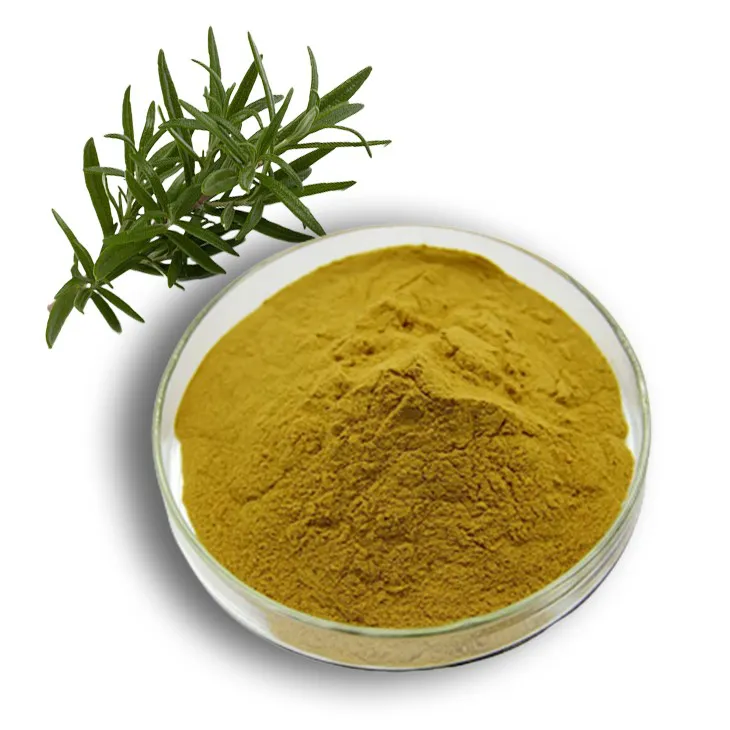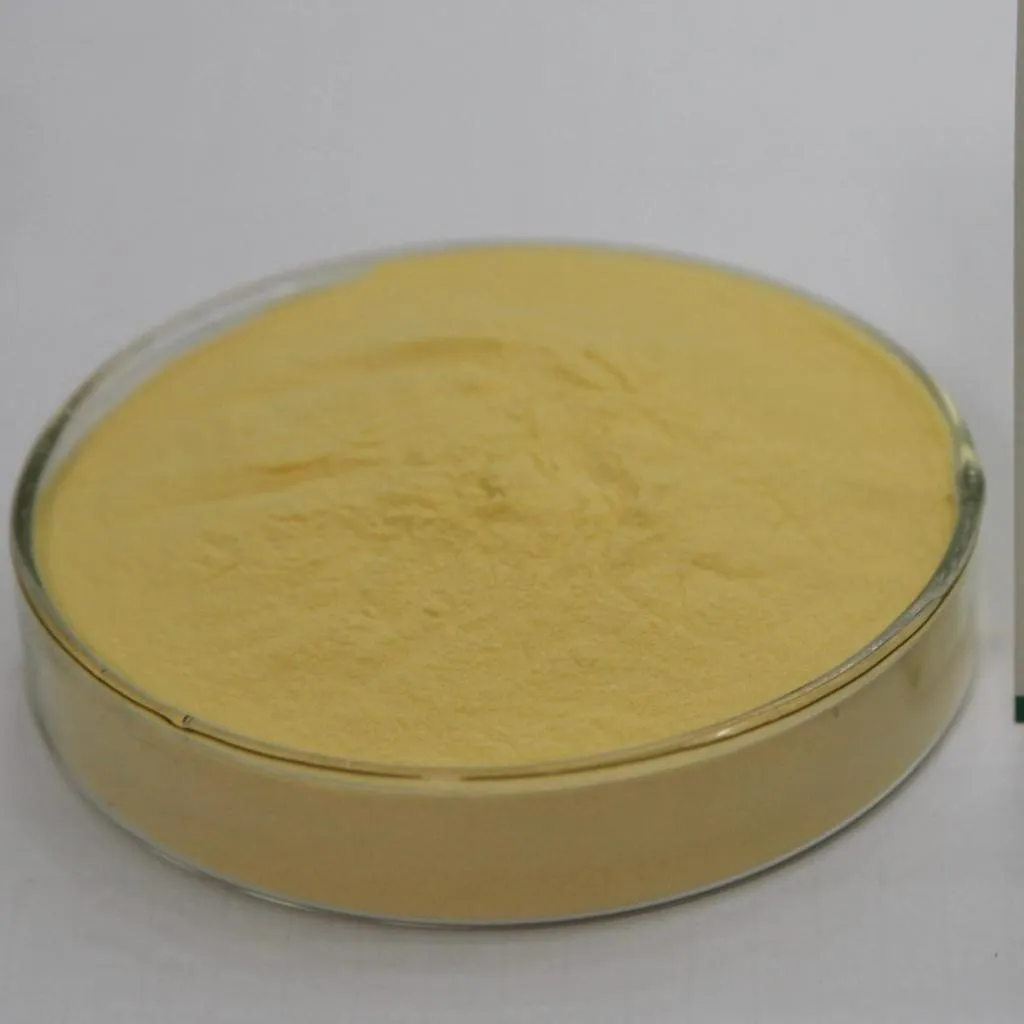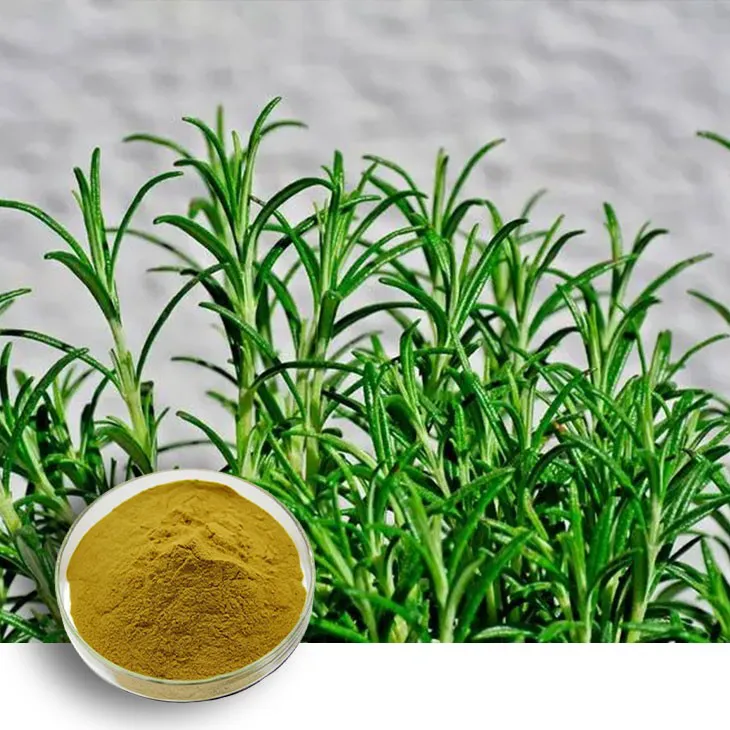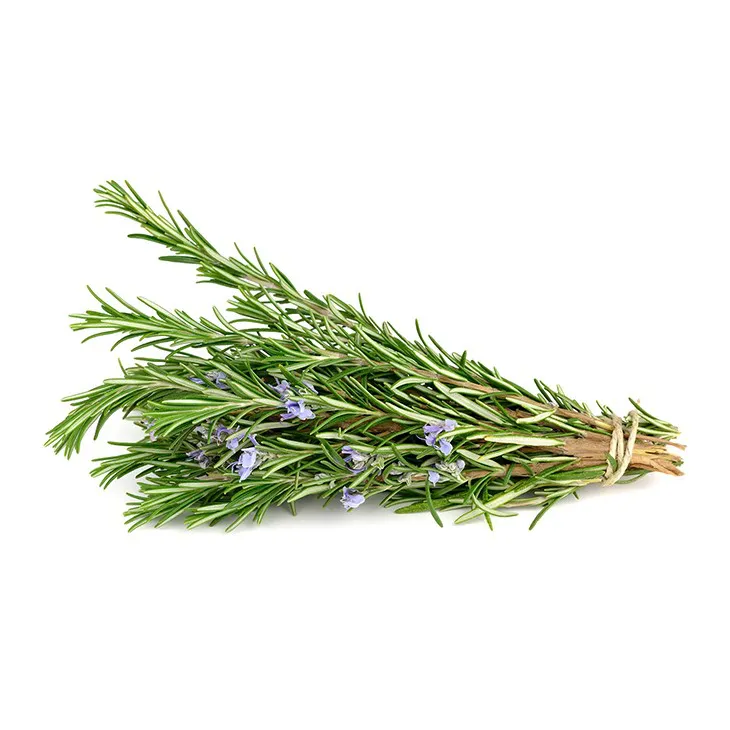- 0086-571-85302990
- sales@greenskybio.com
Organic Rosemary Extract Powder Factory.
2024-11-29

1. Introduction
An organic Rosemary extract powder factory plays a crucial role in the manufacturing of natural products. Rosemary, a well - known herb, has been valued for centuries for its numerous properties. Its aromatic nature makes it a popular ingredient in various industries, and its therapeutic properties add to its value. In the factory, rosemary is processed into a powder form, which is more convenient for storage, transportation, and use in different applications.

2. Raw Material Acquisition
The first and most important step in the production process at an organic Rosemary extract powder factory is the acquisition of raw materials. Organic rosemary is carefully sourced to ensure a high - quality starting point for the extraction process.
2.1 Importance of Organic Sourcing
Organic sourcing is vital as it guarantees a chemical - free and pure raw material. Organic rosemary is grown without the use of synthetic pesticides, fertilizers, or genetically modified organisms (GMOs). This not only ensures the safety of the final product but also meets the increasing consumer demand for natural and organic products. By using organic rosemary, the factory can produce an extract powder that is free from harmful residues and is more appealing to health - conscious consumers.
2.2 Sourcing Networks
Factory owners often establish reliable sourcing networks. These networks may include local farmers who practice organic farming methods. Working with local farmers has several advantages. It helps to support the local economy, reduces the carbon footprint associated with transportation, and allows for better quality control as the factory can have closer communication with the growers. Additionally, some factories may also source rosemary from international organic farms to ensure a continuous supply, especially if the local production is seasonal.

3. Extraction Methods
Once the organic rosemary is obtained, the extraction process begins. There are different methods available in the factory, and the choice depends on the desired components of the extract.
3.1 Steam Distillation
Steam distillation is a commonly used method, especially when the focus is on obtaining an essential oil - rich extract. In this process:
- The rosemary is placed in a distillation apparatus.
- Steam is passed through the rosemary. The steam helps to break down the plant cells and release the volatile compounds, including the essential oils.
- The mixture of steam and volatile compounds is then condensed. As the steam cools, it turns back into liquid, and the essential oils separate from the water due to their different densities.
- The resulting essential oil - rich extract can be further processed to obtain the Rosemary extract powder. This may involve drying and grinding the extract to convert it into a powder form.
3.2 Solvent Extraction
Solvent extraction is another method that may be used in the factory. In this process:
- A suitable solvent, such as ethanol or hexane, is chosen. The choice of solvent depends on factors such as the solubility of the desired components in the solvent and the safety and regulatory requirements.
- The rosemary is soaked in the solvent. The solvent penetrates the plant material and dissolves the target compounds, such as antioxidants and other bioactive substances.
- The solvent - containing the dissolved compounds is then separated from the plant material. This can be done through filtration or centrifugation.
- The solvent is then removed, usually through evaporation under controlled conditions. The remaining residue is the rosemary extract, which can be further processed into powder form.
3.3 Comparison of Extraction Methods
Each extraction method has its own advantages and disadvantages. Steam distillation is a more traditional method and is considered more natural as it uses only steam and water. However, it may not be as efficient in extracting some of the non - volatile components. Solvent extraction, on the other hand, can be more effective in extracting a wider range of compounds, but it requires careful handling of solvents to ensure the safety and purity of the final product. The factory may choose to use either method depending on the specific requirements of the product and the market demands.

4. Research and Development
A key aspect of an organic rosemary extract powder factory is its focus on research and development (R & D). The R & D department in the factory is constantly engaged in activities to improve the production process and the quality of the final product.
4.1 Enhancing Extraction Efficiency
Scientists in the factory are always looking for ways to enhance the extraction efficiency. This may involve:
- Optimizing the extraction parameters, such as the temperature, pressure, and time in the case of steam distillation or the solvent - to - plant ratio in solvent extraction.
- Developing new extraction techniques or modifying the existing ones. For example, they may be exploring the use of microwave - assisted extraction, which has shown potential in improving the extraction efficiency of certain compounds from plants.
- Investigating the use of enzymes to break down the plant cell walls more effectively, which can lead to better release of the target compounds.
4.2 Quality Improvement
Another important area of R & D is quality improvement. This includes:
- Ensuring the purity of the extract powder. Scientists use advanced analytical techniques, such as high - performance liquid chromatography (HPLC) and gas chromatography - mass spectrometry (GC - MS), to analyze the composition of the extract and detect any impurities.
- Stabilizing the active components in the extract. Some of the bioactive compounds in rosemary, such as antioxidants, may be unstable under certain conditions. R & D efforts focus on finding ways to preserve these compounds during the extraction and processing steps.
- Improving the sensory properties of the extract powder, such as its color, odor, and taste. This is particularly important for applications in the food and beverage industries.
4.3 Product Diversification
The R & D team also works on product diversification. They create different grades of the extract powder for various applications:
- In the pharmaceutical industry, a high - purity grade of the extract powder may be required for use in medications or dietary supplements. This grade needs to meet strict regulatory requirements regarding purity, potency, and safety.
- For the food supplement industry, the extract powder may be formulated in different ways. For example, it can be combined with other vitamins or minerals to create a more comprehensive supplement. The taste and solubility of the powder also need to be optimized for use in food products.
- In the skincare industry, the extract powder may be used in creams, lotions, and serums. Here, the focus is on its antioxidant and anti - inflammatory properties. The R & D team may develop a grade of the extract powder that is specifically tailored for skincare applications, with a focus on its compatibility with other skincare ingredients and its ability to penetrate the skin effectively.

5. Regulatory Compliance
An organic rosemary extract powder factory must comply with international regulations regarding organic products. This is essential to ensure the authenticity and safety of the product it produces.
5.1 Organic Certification
To be able to label their product as organic, the factory needs to obtain relevant organic certifications. These certifications are issued by recognized certifying bodies and require the factory to meet certain standards throughout the production process. For example, the factory must maintain proper documentation of the organic sourcing of the rosemary, the production methods used, and the quality control measures in place. The certifying bodies conduct regular audits to ensure that the factory continues to meet the organic standards.
5.2 Food and Pharmaceutical Regulations
If the rosemary extract powder is intended for use in the food or pharmaceutical industries, the factory must also comply with additional regulations specific to these industries.
- In the food industry, regulations govern aspects such as the maximum allowable levels of certain substances in the extract powder, the labeling requirements, and the safety of the product for human consumption. The factory needs to ensure that the extract powder is free from contaminants and meets the quality and safety standards set by food regulatory authorities.
- In the pharmaceutical industry, the regulations are even more stringent. The extract powder must meet strict quality control standards for purity, potency, and stability. The factory needs to follow good manufacturing practices (GMP) and may be required to conduct clinical trials to prove the safety and efficacy of the product if it is used in medications.
5.3 Cosmetic Regulations
When the extract powder is used in the skincare or cosmetic industry, it must comply with cosmetic regulations. These regulations cover aspects such as ingredient safety, labeling, and product claims. The factory needs to ensure that the extract powder is safe for use on the skin and that any claims made about its benefits, such as anti - aging or skin - brightening effects, are supported by scientific evidence.
6. Conclusion
An organic rosemary extract powder factory is a complex and multi - faceted operation. It starts with the careful sourcing of organic rosemary, followed by the selection of appropriate extraction methods. The research and development activities play a vital role in improving the production process, product quality, and diversification. And finally, strict regulatory compliance ensures that the final product is safe, authentic, and of high quality. As consumer demand for natural and organic products continues to grow, these factories will play an increasingly important role in meeting the market needs for rosemary extract powder in various industries.
FAQ:
How is the raw material of organic rosemary sourced?
The raw material, organic rosemary, is sourced carefully to ensure it is chemical - free and pure. This usually involves working with reliable suppliers who grow rosemary following strict organic farming standards.
What are the main extraction methods used in the factory?
The main extraction methods in the factory are steam distillation or solvent extraction. The choice depends on the desired components. For example, steam distillation is often preferred when the focus is on obtaining an essential - oil - rich extract.
What role does research and development play in the factory?
Research and development in the factory is crucial. Scientists are constantly exploring new ways to enhance extraction efficiency and the quality of the final product. They also work on product diversification, creating different grades of the extract powder for various applications in industries like pharmaceuticals, food supplements, and skincare.
How does the factory ensure the product complies with international regulations?
The factory ensures compliance with international regulations regarding organic products through strict quality control measures at every stage of production. This includes verifying the authenticity of the organic raw material, following proper manufacturing processes, and accurate product labeling.
What are the applications of the organic rosemary extract powder?
The organic rosemary extract powder has applications in the pharmaceutical, food supplement, and skincare industries. In pharmaceuticals, it may have potential therapeutic properties. In food supplements, it can be a natural addition, and in skincare, it may offer benefits like antioxidant and anti - inflammatory effects.
Related literature
- Organic Rosemary Extract: Production and Quality Control"
- "Rosemary Extract Powder: From Farm to Factory"
- "The Role of Organic Rosemary Extract in Modern Industries"
- ▶ Hesperidin
- ▶ citrus bioflavonoids
- ▶ plant extract
- ▶ lycopene
- ▶ Diosmin
- ▶ Grape seed extract
- ▶ Sea buckthorn Juice Powder
- ▶ Beetroot powder
- ▶ Hops Extract
- ▶ Artichoke Extract
- ▶ Reishi mushroom extract
- ▶ Astaxanthin
- ▶ Green Tea Extract
- ▶ Curcumin Extract
- ▶ Horse Chestnut Extract
- ▶ Other Problems
- ▶ Boswellia Serrata Extract
- ▶ Resveratrol Extract
- ▶ Marigold Extract
- ▶ Grape Leaf Extract
- ▶ blog3
- ▶ blog4
-
China Aguaje Extract Powder Factory.
2024-11-29
-
Mulberry Extract Suppliers.
2024-11-29
-
Active components in aguaje extract.
2024-11-29
-
Standard - process cocoa extract.
2024-11-29
-
Organic Saw Palmetto Extract Powder Factory.
2024-11-29
-
Suppliers of Organic Açai Extract Powder.
2024-11-29
-
Extraction process of black pepper extract.
2024-11-29
-
Wholesale L - Tyrosine Suppliers.
2024-11-29
-
The best milk thistle extract in 2024.
2024-11-29
-
Artichoke Extract
2024-11-29
-
Phyllanthus Emblica Extract
2024-11-29
-
Eucommia Ulmoides Extract
2024-11-29
-
Propolis Extract Powder
2024-11-29
-
Beetroot juice Powder
2024-11-29
-
Kupilu Extract
2024-11-29
-
Lemon Juice Powder
2024-11-29
-
Nutmeg Extract
2024-11-29
-
Purple Sweet Potato Extract
2024-11-29
-
Lavender Extract
2024-11-29





















